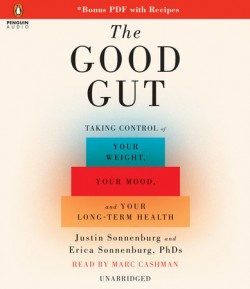I’ve just finished reading this book about gut bacteria, which has led me to believe even more strongly in the role that good gut bacteria plays in health. While the book doesn’t specifically cover food allergies, it does state that “Dysbiosis, or microbial imbalance, is observed in people with a variety of health problems such as Crohn’s disease, metabolic syndrome, colon cancer, and even autism.”
The authors (both are PhD’s in Microbiology and Immunology at Stanford University) also cover the damage that our hyper-hygiene world does to killing off good gut bacteria – along with killing the bad pathogens. This phenomenon, the hygiene hypothesis, has been postulated as one of the potential causes of food allergies.
Research has found that the bacteria in our gut talk to other areas in our body, constantly regulating our body. So, if a child doesn’t have the proper bacteria to tell the body to NOT react to foods such as peanuts, tree nuts, eggs or dairy – the body believes these foods are a pathogen, and protection is needed – thereby initiating the allergic reaction.
Of further interest to those with children with Eosinophilic Esophagitis (EoE) is the information provided on the mucosal immune system: “The mucosal immune system contains two branches, one that reacts aggressively to a threat (the pro-inflammatory side) and one that dampens the aggressive response once the threat subsides (the anti-inflammatory side). The proper response to gut microbes involves a continual balancing act between these two branches, much in the way that a seesaw is balanced when equal weight is placed on both sides. When the seesaw is perfectly balanced, immune harmony is achieved.”
There is a link between gut microbiota and personality/psychological issues. In research with mice, microbe-free mice had memory-related problems. “Chemicals produced by these gut bacteria can penetrate the walls of the intestine and seep into circulation and reach the brain.” More research is being done to identify these chemicals and how they affect our mental state.
The book has convinced me that a healthy diet of vegetables, probiotics, fermented foods and MACs (Microbiota accessible carbohydrates) are in our family’s future!
